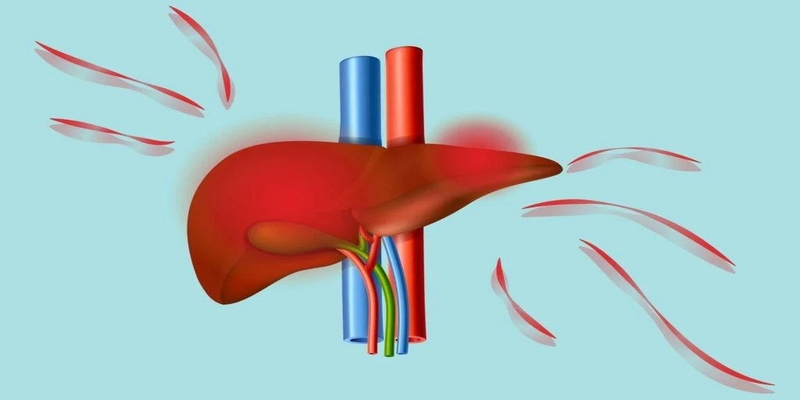Ovarian cancer, sometimes referred to as the silent killer, can go undetected in the early stages. This comprehensive review aims to explore all facets of ovarian cancer symptoms, including both initial indicators and subsequent manifestations that emerge along the course of the illness. Furthermore, we will elucidate the challenges arising from the unperceived peril associated with early-stage ovarian cancer. Upon reaching the end of this article, you will possess the necessary knowledge to identify potential indicators and engage in preventive measures in the battle against ovarian cancer.
The Perilous Nature of Early-Stage Ovarian Cancer
The latent peril of ovarian cancer manifests during its first, inconspicuous stages. The attainment of early detection poses challenges in the absence of routine tests. It is important for those who are already susceptible to a certain condition to have the ability to identify the symptoms in their early stages. Enhancing the probability of a good treatment outcome, timely medical intervention may aid in the identification and mitigation of this covert hazard.
Early Signs and Symptoms of Ovarian Cancer

Ovarian cancer has acquired the moniker "silent killer" when it comes to women's health issues due to the challenges associated with its early detection. Gaining knowledge about the manifestations of ovarian cancer is crucial for timely identification, so significantly enhancing the likelihood of a favorable outcome after treatment.
1. Persistent Bloating
Ovarian cancer often manifests as persistent abdominal bloating, which might serve as a deceptive symptom. Initially, women may have a little sensation of weight or pressure in the lower abdominal region. Nevertheless, the aforementioned condition does not dissipate with time and might be erroneously perceived as a less severe ailment such as flatulence or indigestion. The persistent bloating experienced is distinct from the transient discomfort often associated with common digestive issues, hence potentially leading to misperception. The persistence of this symptom over an extended duration should be regarded as a potential precursor to ovarian cancer, warranting heightened attention and concern.
2. Pelvic or Abdominal Pain
One notable first indicator of ovarian cancer is the presence of persistent, monotonous, and distressing discomfort in the pelvic or abdominal region. Certain individuals of the female gender may attribute this discomfort to menstrual cramps or other benign causes due to its intermittent nature. Nevertheless, there is reason for concern if it continues to occur without a clear justification. The duration and etiology of this discomfort distinguish it from conventional menstrual cramps, necessitating a medical evaluation.
3. Changes in Appetite
The treatment of ovarian cancer has been seen to induce significant alterations in appetite. Females may experience a sense of satiety after consumption of a little quantity of food, or alternatively, they may see a reduction in their appetite. These variations from typical alterations in eating behavior are not associated with individual food preferences or gastrointestinal disorders. These alterations and their endurance may serve as indicators for several illnesses, including ovarian cancer.
4. Increase in Frequency of Urination
Symptoms of ovarian cancer may manifest as heightened urinary frequency, persisting for a duration beyond several weeks. Regrettably, this particular symptom is often misunderstood as a urinary system infection or a comparable condition. Within the realm of ovarian cancer, it is important to differentiate between a temporary concern related to urinary issues and the persistent nature of this symptom. The presence of heightened urinary frequency, unaccompanied by concurrent changes in lifestyle, necessitates medical examination in order to exclude the possibility of more severe medical conditions such as ovarian cancer.
Unexplained Weight Loss

Another subtle symptom that might potentially suggest the presence of ovarian cancer is rapid and unexplained weight loss. It is conceivable that some women may experience natural weight loss without implementing any modifications to their dietary or exercise regimen. The occurrence of unanticipated weight loss is a matter of apprehension in isolation, though its significance amplifies considerably when accompanied by additional symptoms. It is imperative for individuals diagnosed with ovarian cancer to promptly seek medical assistance upon the occurrence of abrupt and unexplained weight loss, since this symptom may potentially indicate the presence of other medical conditions.
Determining the Optimal Time For Treatment for Suspected Ovarian Cancer
It is essential to promptly seek medical evaluation upon manifestation of any potential symptoms indicative of ovarian cancer. Having knowledge of the warning signs and understanding when to seek aid has the potential to significantly impact an individual's survival.
It is essential to have a medical evaluation if one has been encountering symptoms such as bloating, pelvic or abdominal pain, alterations in appetite, increased frequency of urination, or unexplained weight loss. When the aforementioned symptoms last for a duration beyond a few weeks and cannot be ascribed to innocuous causes, it is advisable to seek medical attention.
In addition, it is imperative for postmenopausal women experiencing any instances of vaginal bleeding or spotting to promptly seek medical intervention.
Individuals with a familial background of endometriosis, ovarian or breast cancer, possession of the BRCA1 or BRCA2 gene mutation, or a family history of these malignancies should exercise heightened vigilance. Prompt reporting of any unusual or enduring symptoms is of utmost importance, since timely detection has the potential to significantly augment treatment outcomes.
It is important to note that although ovarian cancer may not always underlie these symptoms, it is crucial to not dismiss them. The first measure in addressing health challenges and preserving one's overall wellness is seeking medical intervention and engaging in a dialogue with a healthcare professional to express any concerns.
Understanding Ovarian Cancer Protection
The implementation of preventive strategies for ovarian cancer has significantly increased due to the heightened recognition of the substantial health risks it presents to women worldwide. A comprehensive understanding of these protective measures is crucial in combating this disease. This knowledge is of utmost importance for women seeking to optimize their overall well-being.
The Role of a Healthy Lifestyle in Prevention
The preventive effects of adhering to a healthy lifestyle are crucial in mitigating the likelihood of ovarian cancer occurrence. The development of a robust innate defensive system against cancer may be facilitated by adopting a dietary pattern characterized by a high intake of fruits and vegetables, while minimizing the consumption of processed or high-fat foods. Furthermore, the efficacy of this defensive strategy might potentially be enhanced with the incorporation of regular exercise into one's daily routine.
Exploring Birth Control and Pregnancy as Protective Measures
An analysis of the role of pregnancy and contraception as protective measures
The study of birth control and pregnancy has valuable insights for the prevention of ovarian cancer. When used over an extended duration, oral contraceptives seem to provide a certain degree of protection against the sickness. Research has shown that both motherhood and breastfeeding may effectively mitigate these dangers, providing women with an inherent mechanism of safeguarding.
Emphasizing Regular Check-ups and Self-awareness
For individuals who possess concerns about ovarian cancer, it is essential to recognize the significance of engaging in preventive measures, such as regular medical check-ups and specifically, pelvic exams. Although the diagnostic accuracy of these tests for ovarian cancer is not conclusive, they have the potential to detect abnormalities that need further examination. Moreover, women who possess a heightened level of self-awareness are less prone to overlooking potentially hazardous alterations in their physiological state.
Conclusion
The timely detection of ovarian cancer is of utmost importance due to its inconspicuous manifestation or capacity to imitate other medical conditions. Due to the widespread ignoring or misdiagnosis of the signs and symptoms associated with this particular ailment, it is imperative for women to adopt a cautious approach and prioritize regular medical examinations as their primary means of prevention. The comprehension of these cautionary indicators and the prioritization of preventive measures empower women to confront this peril directly, so enhancing the probability of an expeditious diagnosis, more effective treatment, and an extended life expectancy. The effective management of ovarian cancer requires individuals to possess enough knowledge, have a watchful attitude, and promptly undertake appropriate measures.




